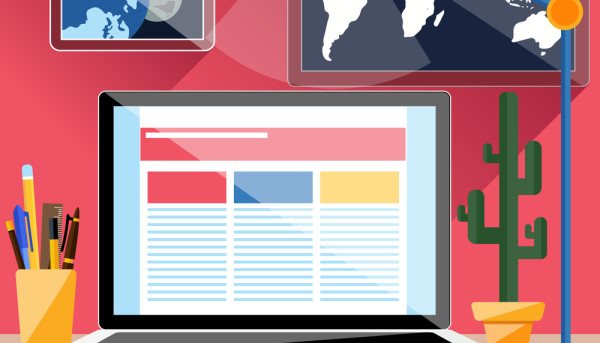Buying a Home - What is Mortgage Insurance?

Buying a home is one of the most important investments you will ever make, so it's important to know all you can about mortgage insurance before you begin the process. This article discusses both lender-paid and private mortgage insurance (PMI) and how to avoid paying it.
Low down payment requirements
Whether you are a first time homebuyer or a seasoned buyer, you are likely to have heard the term "low down payment requirements" on a home loan. The term is not a law, but a guideline for lenders and a way to determine how much you can afford to borrow.
The down payment represents the initial investment in a home. It can also be a percentage of the home's value. The size of the down payment depends on the home's primary residence and the type of loan you are applying for.
Putting less down may lower your monthly mortgage payment, but it can also mean you will be required to pay more in interest over time. Depending on the type of loan, you may be required to pay mortgage insurance, or PMI.
Getting a low down payment is not a surefire way to qualify for a home loan. However, it can open doors for homebuyers who don't have a lot of money saved.
Getting a low down payment can free up cash to cover other expenses and allow you to buy a home sooner. However, it is important to shop around and determine which type of loan will suit your needs.
There are a variety of mortgage programs available to home buyers today. The type of loan you qualify for depends on several factors, including your credit, income, and debt-to-income ratio. The best way to find the right loan is to contact a loan officer and ask them about your options.
There are a number of low down payment mortgage programs available. Some require as little as 3% down, while others require as much as 20%. Some programs offer down payment assistance, such as gift money. Several state and city governments offer down payment assistance programs.
If you don't have much cash to spare for a down payment, look for a lender that offers a no-down-payment mortgage. There are also government grants available to cover your out-of-pocket expenses.
There are several types of low down payment programs available to homebuyers, including FHA and VA loans. FHA loans allow you to buy a home with a down payment of 3.5%. Alternatively, you can choose a conventional loan with a down payment of 3% or 5%.
Lender-paid mortgage insurance (LPMI)
Buying a home often involves private mortgage insurance (PMI), or lender-paid mortgage insurance (LPMI). These mortgage insurance policies can help lower the monthly cost of a mortgage. However, LPMI can also be expensive and not always the best option for everyone.
If you have a high credit score and are planning to make your home your primary residence, LPMI can save you money. In some cases, LPMI can be a tax-deductible expense. The costs of LPMI depend on the length of your loan, the amount of down payment, and the type of mortgage insurance.
Homebuyers often choose LPMI because they want to lower their monthly payments. This is usually the case when the homebuyer wants to refinance in a few years. However, LPMI may not be the best option if you plan to stay in your home for several years. In these cases, refinancing may cost more. LPMI can be dropped when you have enough equity in your home. However, refinancing can also come with a lot of out-of-pocket costs.
Lender-paid mortgage insurance (LPMI) is a policy that is built into your mortgage. It is usually paid over the life of your loan. The insurance company covers the lender in case you default on your mortgage. The cost of mortgage insurance depends on the type of mortgage and the borrower's credit score. The cost of LPMI can be as low as $2 to $30 per month for every $100,000 you borrow.
In order to get LPMI, you must have a down payment of less than 20% of the purchase price of your home. The lender will then adjust your mortgage rate to cover the costs of the insurance. It is usually not a good idea to purchase LPMI if your loan is close to 80% of the home's value.
When you get LPMI, you can get a loan for 80% of the home's value, or you can get a loan to 95%. You can pay the insurance premiums at closing or in monthly payments. If you choose monthly payments, the insurance will be bundled into your mortgage payments.
Private mortgage insurance (PMI)
Buying a home with private mortgage insurance is not something everyone chooses to do, but it can be a very smart move. It allows you to purchase a home with a smaller down payment than you would normally qualify for, and can help you reach your goals faster. It is not cheap though, so you will need to watch your budget carefully.
The most important thing to know about private mortgage insurance is that it can cost a lot of money. The premium is usually rolled into your monthly mortgage payments, but you can also pay it out of pocket. The cost will vary from lender to lender, but it is usually somewhere in the neighborhood of 0.2 percent to 2 percent of the loan amount.
Getting a loan with a higher credit score will lower your premium, but your down payment will still make you a better risk for the lender. You can also opt to get single-premium PMI, which will combine the entire cost of your insurance into one monthly payment.
The other thing you need to know about private mortgage insurance is that it does not protect you in the event of a payment default. This is because your lender can foreclose on your home to recover the money they borrowed from you. However, if you own the home for a long time, the increased value of your home should help you get out of your mortgage faster, putting you back in the driver's seat in terms of saving money.
There are also programs that allow you to get a loan with no PMI at all. These programs include Fannie Mae's Home Possible loan and Freddie Mac's Home Possible loan. You can also try to find a lender with a proprietary PMI-free program.
Private mortgage insurance is a good tool for home buyers, but it does not come cheap. Using the right lender will help you save money while getting the best possible mortgage. But, before you make your final decision, make sure to compare offers from several lenders. You might also want to use a site like Zillow to find a lender. The site allows you to enter your ZIP code to find lenders in your area.
Refinance to get out of mortgage insurance
Buying a home doesn't have to mean paying for mortgage insurance, as there are ways to get out of it. One of these ways is to refinance. This can help you get a lower interest rate, or you can eliminate mortgage insurance premiums altogether. Whether you're refinancing to pay off high-interest debt, or to pay for home repairs or renovations, you may be able to get a better rate.
Some loans have seasoning requirements. This means that you have to wait a certain number of years before you can refinance to get rid of mortgage insurance. However, if you're already paying for PMI, you may be able to negotiate a cancellation of PMI before that.
You can also avoid PMI by making a large down payment. If you have 20% or more of the home's value in equity, you may be able to negotiate for the PMI to be removed at closing. However, it may be necessary to make a larger down payment, as PMI usually only covers 80% of the loan amount.
If you want to refinance your mortgage, you'll need to prove you have a good credit history, and you'll also need to show that you've been making payments on time. You'll also need to provide documentation of your income, assets and home value. There are also some lenders that will accept a broker's price opinion instead of an appraisal of the home.
You can also ask your mortgage servicer to cancel PMI when you reach 80% of the home's value. However, you'll need to request the cancellation in writing. If you're late on your payments, your mortgage servicer may not be willing to let you cancel your PMI early.
If you are interested in refinancing your mortgage, you should compare lenders in your area. You should also check to make sure that your current lender will be able to help you get out of mortgage insurance. You should also make sure that your new loan meets the refinancing standards set by your lender.
If you're interested in refinancing, you should check your credit report to see if you have a FICO Score of 8. This will help you determine whether you can qualify for a lower interest rate.











